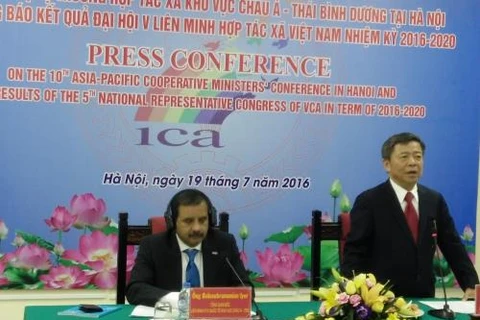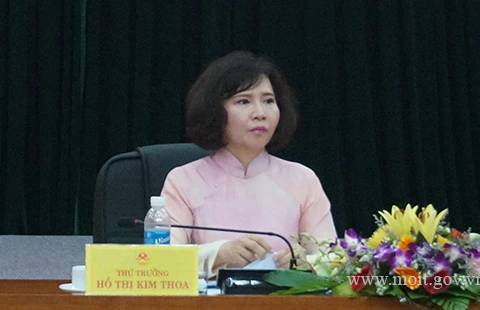 Nguyen Thanh Nam, former CEO of FPT, shared his opinion on public-private ties in STEM education and training during a session on ideas to develop a skilled STEM workforce. (Photo: courtesy of Higher Engineering Education Alliance Programme)
Nguyen Thanh Nam, former CEO of FPT, shared his opinion on public-private ties in STEM education and training during a session on ideas to develop a skilled STEM workforce. (Photo: courtesy of Higher Engineering Education Alliance Programme) Hanoi (VNA) - Experts agreed on March 1 in a conference in Hanoi that there was a need for more public-private partnerships in education and training.
The two-day conference, STEMCON, focused on trends in the field and how to realise STEM goals in education and the economy in Vietnam.
“University and industry are like darlings, always praising each other, but we need to ‘get married’ already, and be fully committed to helping each other, compensating for each other’s weaknesses,” said Nguyen Thanh Nam, former CEO of FPT and founder of online university FUNIX, at a conference on science, technology, engineering and mathematics (STEM) education and in the workforce.
Rector of the HCM Vocational College of Technology, Nguyen Thi Hang, agreed.
She stressed that universities and companies must be “equal entities, with equal rights and equal responsibilities in education and training.”
Hang also considered the government’s decision to expand university autonomy a step in the right direction, which will give universities more flexibility in decision-making and budget to collaborate with private sector.
Panellists at the event discussed the best ideas to develop a skilled STEM workforce through industry, academic, and government collaboration.
Assoc. Prof. Le Quan, Vice President of Vietnam National University (VNU), said his school is planning co-operation with technology companies in “research activities instead of just focusing on student training activities like at the moment.” He also shared an ambitious plan to establish a technology university managed by VNU and telecoms firm Viettel.
The conference was organised for the fifth year by the Higher Engineering Education Alliance Programme (HEEAP), founded by the US’ Arizona State University (ASU), Intel Corporation, and Vietnamese partners, with funding from the US Agency of International Development, bringing together the academic, industry and government communities.
All speakers agreed that STEM careers are an innovative force behind the world’s economy, especially with the trend of automation and data exchange in manufacturing technology.
Tran Van Tung, Deputy Minister of Science and Technology, said “competitive advantages based on natural resources or labour cannot be sustained for long in the current world; the country can only hope to develop by competitive advantages based on STEM, raising intellectual content in national products. Only in this way can Vietnam achieve sustainable economic development, bridging the development gaps with other countries.”
Tung added that in recent years, the government has put a strong focus on science and technology via several national programmes and targets.
HEEAP and Intel also took the occasion to announce a new Master Fellowship one-year programme in engineering for 19 Vietnamese students to study in the US to support HCM City People’s Committee in its smart-city initiative.
Also, ASU will hold a one-week workshop for HCM City authorities to recommend the right focuses for the smart-city initiative.-VNA
VNA





















